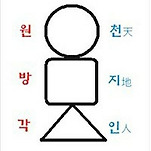<p style="text-align: left;">서양불량배&#160;화법 <br><br>약해빠진&#160;치즈볼 <br>What&#160;a&#160;cheeseball! <br><br>Cheeseball <br><br>Used&#160;one&#160;time&#160;after&#160;a&#160;person&#160;says&#160;something&#160;silly,&#160;goofy&#160;or&#160;corny,&#160;or&#160;behaves&#160;in&#160;a&#160;similar&#160;way. <br><br>Or,&#160;on&#160;a&#160;regular&#160;basis,&#160;to&#160;describe&#160;someone&#160;who&#160;says&#160;things&#160;or&#160;behaves&#160;in&#160;silly,&#160;goofy&#160;or&#160;corny&#160;ways&#160;repeatedly. <br><br>Melvinis&#160;acting&#160;like&#160;a&#160;total&#160;cheeseball <br><br>by&#160;Soob&#160;March&#160;19,&#160;2004 <br><br><br>Cheeseball <br><br>Someone,&#160;usually&#160;a&#160;male&#160;around&#160;his&#160;teenage&#160;years&#160;who&#160;pretends&#160;to&#160;be&#160;funny. <br><br>He&#160;uses&#160;mostly&#160;slapstick&#160;humor&#160;(usually&#160;involving&#160;the&#160;removal&#160;of&#160;his&#160;own&#160;clothing&#160;or&#160;the&#160;putting&#160;on&#160;of&#160;woman&#39;s&#160;clothing),&#160;corny&#160;old&#160;jokes&#160;or&#160;in&#160;general&#160;just&#160;acts&#160;like&#160;a&#160;three&#160;year&#160;old. <br><br>As&#160;a&#160;former&#160;cheeseball&#160;myself&#160;I&#160;can&#160;attest&#160;that&#160;most&#160;cheeseballs&#160;use&#160;this&#160;humor&#160;to&#160;try&#160;to&#160;get&#160;cheap&#160;laughs&#160;out&#160;of&#160;people&#160;in&#160;hope&#160;that&#160;they&#160;will&#160;like&#160;them&#160;more. <br><br><br>99%&#160;of&#160;the&#160;time&#160;the&#160;cheeseball&#160;just&#160;looks&#160;like&#160;a&#160;jackass&#160;however&#160;that&#160;1%&#160;the&#160;cheeseball&#160;miraculously&#160;goes&#160;about&#160;making&#160;friends. <br><br>&quot;Look&#160;at&#160;me&#160;Lila&#160;I&#39;m&#160;a&#160;Viking!&quot;&#160;as&#160;this&#160;particular&#160;cheeseball&#160;blocks&#160;the&#160;path&#160;of&#160;his&#160;girlfriend&#160;in&#160;an&#160;aisle&#160;while&#160;wearing&#160;Viking&#160;horns. <br><br>&quot;I&#160;can&#160;speak&#160;bird&#160;-&#160;&#39;meow,&#160;meow&#39;&quot;&#160;-&#160;said&#160;as&#160;someone&#160;points&#160;at&#160;a&#160;pidgeon&#160;in&#160;a&#160;park. <br><br>Guy&#160;A:&#160;Wow&#160;you&#160;like&#160;men <br>Guy&#160;B:&#160;No&#160;you&#160;like&#160;men <br>Guy&#160;A:&#160;No&#160;she&#160;likes&#160;men&#160;(pointing&#160;at&#160;a&#160;girl) <br>Guy&#160;B:&#160;Haha&#160;girls&#160;like&#160;men! <br><br><br><br><br><br><br>&#160; <br><br>We&#160;believe&#160;in&#160;God. <br>우리는&#160;神&#160;속에서&#160;믿는다(×) <br>우리는&#160;神의&#160;公明正大함을&#160;믿는다(○) <br><br><br>believe&#160;in&#160;God에&#160;justice(공명정대)라는&#160;의미가&#160;숨어&#160;있기&#160;때문이다. <br>&#160; <br>&#160; <br>IN&#160;GOD&#160;WE&#160;TRUST <br>=WE&#160;TRUST&#160;IN&#160;GOD <br><br>神&#160;속에서&#160;믿는다(×) <br>우리는&#160;神을&#160;믿는다(○) <br><br>미국에&#160;富를&#160;가져다&#160;준&#160;神의&#160;능력을&#160;믿는다 <br><br><br>Yesterday&#160;all&#160;my&#160;troubles&#160;seemed&#160;so&#160;far&#160;away.&#160;Now&#160;it&#160;looks&#160;as&#160;though&#160;they’re&#160;here&#160;to&#160;stay.&#160;Oh&#160;I&#160;believe&#160;in&#160;yesterday. <br>어제는&#160;내&#160;모든&#160;근심&#160;걱정이&#160;사라진&#160;것&#160;같았어.&#160;지금은&#160;내&#160;모든&#160;근심&#160;걱정들이&#160;여기에&#160;와&#160;머무르는&#160;듯하네.&#160;오,&#160;어제가&#160;좋았어 <br><br>believe&#160;in&#160;yesterday에&#160;happiness라는&#160;의미가&#160;담겨&#160;있기&#160;때문이다. <br>&#160; <br>I&#160;started&#160;out&#160;believing&#160;in&#160;an&#160;America&#160;where&#160;anyone,&#160;given&#160;equal&#160;opportunity,&#160;can&#160;succeed&#160;through&#160;hard&#160;and&#160;faith.&#160;I&#160;still&#160;believe&#160;in&#160;that&#160;America. <br>나는&#160;미국이라는&#160;나라를&#160;믿음으로써&#160;시작했다.&#160;미국에서는&#160;누구나&#160;동등한&#160;기회를&#160;부여받기&#160;때문에&#160;신념을&#160;갖고&#160;노력하면&#160;누구나&#160;성공할&#160;수&#160;있다는&#160;것이&#160;가능하기&#160;때문이다.&#160;나는&#160;여전히&#160;그러한&#160;미국이&#160;좋다고&#160;믿고&#160;있다 <br>&#160; <br><br>I&#160;believe&#160;in&#160;Aspirin. <br>나는&#160;아스피린의&#160;「약효」를&#160;믿는다 <br><br>Players&#160;must&#160;believe&#160;in&#160;themselves&#160;if&#160;they&#160;are&#160;to&#160;win. <br>경기에&#160;이기려면&#160;선수는&#160;자신의&#160;능력을&#160;믿어야&#160;한다 <br>&#160; <br>There’s&#160;all&#160;the&#160;difference&#160;between&#160;believing&#160;someone&#160;and&#160;believing&#160;in&#160;him. <br>누군가의&#160;말을&#160;믿는다는&#160;것과&#160;그&#160;사람&#160;자신의&#160;인격(능력)을&#160;인정한다는&#160;것은&#160;전혀&#160;다른&#160;문제다 <br><br>&#160; <br><br>&#160; <br>&#160;art <br>예술만을&#160;의미하는&#160;것이&#160;아니라&#160;광범위한&#160;의미의&#160;「術」을&#160;말한다. <br><br>어떤&#160;것을&#160;만들거나&#160;행하는&#160;훌륭한&#160;솜씨(fine&#160;skill&#160;in&#160;the&#160;making&#160;or&#160;doing&#160;of&#160;anything) <br><br><br>the&#160;healing&#160;art는&#160;醫術(의술), <br>the&#160;art&#160;of&#160;war는&#160;戰術(전술), <br>the&#160;art&#160;of&#160;loving은&#160;사랑하는&#160;技法(기술),&#160;the&#160;art&#160;of&#160;building은&#160;건축술 <br><br>Life&#160;is&#160;the&#160;art&#160;of&#160;drawing&#160;sufficient&#160;conclusions&#160;from&#160;insufficient&#160;premises. <br>인생이란&#160;불충분한&#160;전제로부터&#160;충분한&#160;결론을&#160;이끌어&#160;내는&#160;기술이다 <br>&#160; <br>&#160; <br>Heaven&#160;helps&#160;those&#160;who&#160;help&#160;themselves. <br>하늘은&#160;스스로를&#160;돕는&#160;자를&#160;돕는다 <br>하늘은&#160;자기&#160;자신을&#160;돕는&#160;자를&#160;돕는다 <br>하늘은&#160;스스로&#160;노력하는&#160;자를&#160;돕는다 <br>&#160; <br>Live&#160;and&#160;let&#160;live. <br>=&#160;Live&#160;(your&#160;life)&#160;and&#160;let&#160;(others)&#160;live&#160;(their&#160;lives). <br>너&#160;나름대로의&#160;삶을&#160;살려면&#160;남도&#160;나름대로의&#160;삶을&#160;살도록&#160;하라,&#160;인생은&#160;제멋이다 <br><br><br><br>We&#160;chose&#160;him&#160;a&#160;doctor. <br>우리는&#160;그에게&#160;의사&#160;한&#160;분을&#160;선택해&#160;주었다 <br>우리는&#160;그를&#160;의사로&#160;선출했다(×) <br><br>&#160; <br><br><br>I’m&#160;looking&#160;for&#160;a&#160;job. <br>나는&#160;직업을&#160;찾고&#160;있다 <br><br>I’m&#160;looking&#160;for&#160;my&#160;job(×) <br>영어에서&#160;소유격은&#160;旣往(기왕)에&#160;자기&#160;소유가&#160;된&#160;것에만&#160;붙이는&#160;것이다. <br>&#160; <br><br>나의&#160;직업은&#160;언론인이다 <br>My&#160;occupation&#160;is&#160;a&#160;journalist.(×) <br>&#160; <br>「occupation」은&#160;추상명사이고&#160;「journalist」는&#160;보통명사이기&#160;때문에&#160;주어·보어의&#160;관계가&#160;성립되지&#160;않는다. <br><br>올바른&#160;영어는&#160;「My&#160;occupation&#160;is&#160;journalizing.」&#160;아니면&#160;「I&#160;am&#160;a&#160;journalist&#160;by&#160;occupation.」이라고&#160;하든가&#160;아예&#160;「I&#160;am&#160;a&#160;journalist.」 <br>&#160; <br>She&#160;is&#160;a&#160;beauty. <br>그녀는&#160;미인이다 <br><br>She&#160;is&#160;beauty. <br>그녀는&#160;美다(×) <br>&#160; <br>정확한&#160;英譯을&#160;하려면&#160;콤마(쉼표),&#160;관사&#160;하나까지도&#160;소홀히&#160;해서는&#160;안&#160;된다.&#160;「He&#160;left&#160;Korea&#160;never&#160;to&#160;return.」은&#160;「그는&#160;영원히&#160;한국을&#160;떠났다」&#160;아니면&#160;「그는&#160;한국을&#160;떠나서&#160;결코&#160;돌아올&#160;수&#160;없었다」로&#160;옮길&#160;수&#160;있다. <br>&#160; <br>그런데&#160;「그는&#160;한국을&#160;떠나서&#160;결코&#160;돌아올&#160;수&#160;없었다」를&#160;영역하게&#160;되면&#160;never&#160;앞에&#160;반드시&#160;콤마를&#160;찍어&#160;「He&#160;left&#160;Korea,&#160;never&#160;to&#160;return.」이라고&#160;해야&#160;된다.&#160;만약&#160;콤마를&#160;찍지&#160;않으면&#160;「그는&#160;결코&#160;돌아오지&#160;않기&#160;위하여&#160;한국을&#160;떠났다」가&#160;되어&#160;오해의&#160;소지가&#160;있기&#160;때문이다. <br>&#160; <br>&#160; <br><br><br>Time&#160;is&#160;flying&#160;never&#160;to&#160;return. <br>시간은&#160;흐르는&#160;물처럼&#160;지나가&#160;결코&#160;돌아오지&#160;않는다 <br>&#160; <br><br>그는&#160;정치인이&#160;되었다 <br>He&#160;turned&#160;politician. <br><br>「politician」에&#160;관사를&#160;붙이면&#160;안&#160;된다.&#160;부정관사&#160;a를&#160;붙여&#160;「He&#160;turned&#160;a&#160;politician」이라고&#160;하면&#160;「그는&#160;정치인&#160;한&#160;사람을&#160;(물레방아와&#160;같은&#160;곳에&#160;묶어&#160;놓고)&#160;돌렸다」는&#160;희한한&#160;의미가&#160;되든가,&#160;아니면&#160;「그는&#160;어떤&#160;정치인의&#160;마음을&#160;바꿔&#160;놓았다」는&#160;의미가&#160;된다.&#160;politician은&#160;보어로&#160;사용되어&#160;있고,&#160;a&#160;politician은&#160;목적어로&#160;사용되어&#160;있기&#160;때문이다. <br>&#160; <br>&#160;우리는&#160;그를&#160;대통령으로&#160;선출했다 <br>We&#160;chose&#160;him&#160;President. <br><br><br>President에&#160;정관사&#160;the를&#160;붙여서 <br>We&#160;chose&#160;him&#160;the&#160;President.라고&#160;하면&#160;우리는&#160;그에게&#160;그&#160;대통령을&#160;선택해&#160;주었다&#160;는&#160;엉뚱한&#160;의미가&#160;된다. <br>&#160; <br>&#160;&#160;그러면&#160;왜&#160;그럴까? <br><br>관사가&#160;없는&#160;보통명사는&#160;이미&#160;명사가&#160;아니라&#160;형용사의&#160;자격을&#160;갖는다.&#160;형용사가&#160;되면&#160;목적어가&#160;될&#160;수&#160;있는&#160;자격을&#160;박탈당하게&#160;된다.&#160;따라서&#160;관사&#160;없는&#160;보통명사는&#160;보어라는&#160;것을&#160;可視的(가시적)으로&#160;나타내&#160;준&#160;셈이다. <br>&#160; <br><br><br>The&#160;Child&#160;is&#160;father&#160;of&#160;the&#160;Man. <br>어린이는&#160;어른의&#160;아버지와&#160;같다 <br><br>father&#160;앞에&#160;the가&#160;없다.&#160;이때&#160;father는&#160;형용사&#160;「아버지와&#160;같은(fatherly나&#160;fatherlike)」의&#160;의미이다.&#160;따라서&#160;「어린이는&#160;어른의&#160;아버지다」가&#160;아니라&#160;「어린이는&#160;어른의&#160;아버지와&#160;같다」라고&#160;옮겨야&#160;한다. <br><br>&#160; <br><br>論語 <br><br>唯女子與小人(유여자여소인)&#160;爲難養也(위난양야)&#160;近之則不遜(근지즉불손)&#160;遠之則怨(원지즉원) <br><br>여자와&#160;소인배는&#160;다루기&#160;어렵다.&#160;가까이&#160;하면&#160;버릇이&#160;없어지고,&#160;멀리하면&#160;원망한다 <br>&#160; <br>Women&#160;and&#160;petty&#160;men&#160;are&#160;hard&#160;to&#160;control.&#160;If&#160;you&#160;become&#160;close&#160;to&#160;them,&#160;they&#160;turn&#160;disobedient.&#160;If&#160;you&#160;keep&#160;them&#160;at&#160;a&#160;distance&#160;they&#160;turn&#160;resentful. <br>&#160; <br>여기에서&#160;「turn」은&#160;「become」보다&#160;훨씬&#160;궁합이&#160;맞는&#160;더욱&#160;섬세한&#160;대용어(substitute)라고&#160;볼&#160;수&#160;있다. <br><br><br><br>9988234 <br><br>99세까지 <br>88하게&#160;사시다가 <br>23일만&#160;앓고 <br>4&#160;망하시라 <br><br><br><br><br><br><br><br><br><br></p>
<!-- -->
카페 게시글
불량화법
약해 빠진 치즈볼 같은니라고!
석수
추천 0
조회 31
23.04.29 01:11
댓글 0
다음검색


